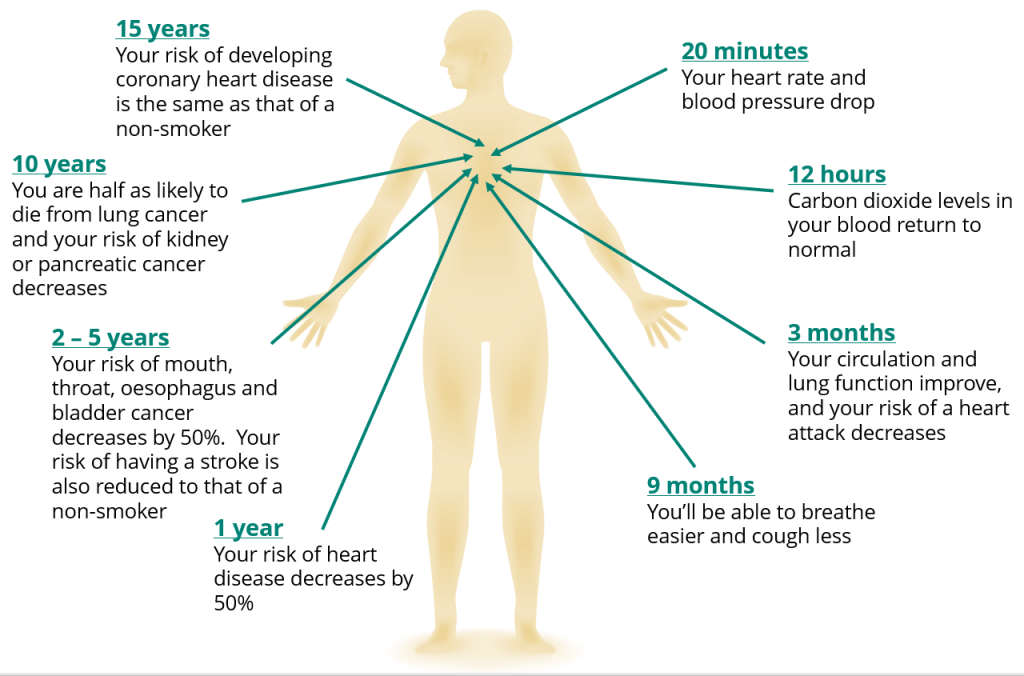Why smoke?

Around 15% of adults in the UK smoke, and fewer do every year, with smoking rates currently at the lowest since they’ve been recorded. We are more aware than ever that tobacco smoke is deadly, both to smokers themselves and to the people around them. It plays a role in one out of every ten deaths.
Tobacco products sold in the UK now have to have plain packaging that tells you about the dangers of smoking. These include many cancers – such as of the lung, mouth, lip, throat, larynx, oesophagus, bladder, kidney, liver, stomach and pancreas – as well as damage to the heart, lungs, brain, nerves, blood vessels and reproductive organs. These effects usually build up and result in death by heart attack or stroke. Beyond this, smoking affects your appearance, yellowing your teeth and fingers while dulling your eyes, hair and skin, and also dulls your sense of smell and taste.

If you have diabetes, smoking has more risks. The damage it does to your blood vessels can make problems with your feet and eyes affect you when you’re much younger. In addition, these problems can be more serious, with smokers with diabetes being much more likely to require amputation. People with diabetes who smoke are almost three times more likely to have episodes of extreme hypoglycaemia, meaning that they lose consciousness or need to be hospitalised. Smoking also increases your insulin resistance, which means you’ll have to check your doses and change your regimen a lot more often.
Most people who smoke tend to regret starting and advise others against starting, and more than 60% of current smokers want to quit. You might find it interesting to talk to the people you know who smoke, about why they started and whether they’d choose to do it again. The most common reason people give for starting to smoke is as a social thing – because their friends smoked, and they’d take smoking breaks together, or have a smoke on a night out. Smokers tend to want to quit because cigarettes are very expensive – most smokers spend around £250 per month on cigarettes – and because of the health risks involved.
The NHS provides free resources and support to anyone who wants to quit smoking. This can be through counselling or support groups, through nicotine replacement products (like gum, patches or inhalers), or through prescriptions that can help manage addiction. If you already smoke or are thinking about starting, you can contact NHS Smokefree or your local Stop Smoking Service.



Leave a Reply
You must be logged in to post a comment.